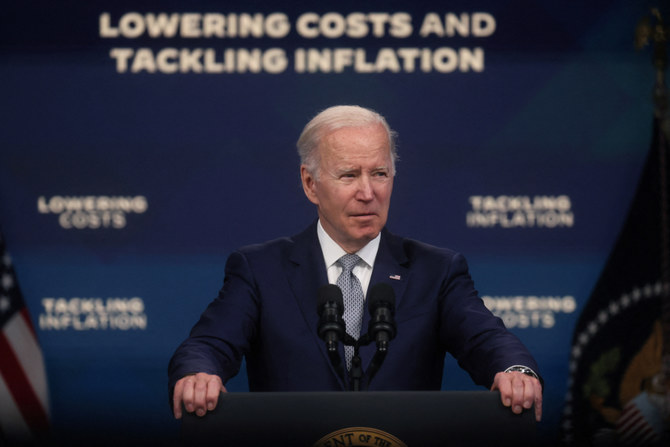
- ARAB NEWS
- 13 Jul 2025

US President Joe Biden’s Middle East policy is based on pragmatism. He does not want to have a comprehensive Middle East strategy or a long rivalry in the region with either Russia or China. This philosophical orientation gives American diplomacy a great deal of flexibility.
The danger of such a foreign policy, however, is that pragmatism can be a goal in itself. Yet Biden and his senior advisers are still considerate of the historical and political factors that are key elements in the power game in the Middle East. For instance, the president is personally not endeared to the government of Egypt as far as its human rights policies are concerned, but he does not want a total breakdown in the relationship between his country and Cairo. However, it is certainly taking his team of foreign policy advisers a long time to formulate a coherent policy toward Egypt.
Gradually, the Biden administration is paying more attention to the Israeli-Palestinian conflict. It fears a total confrontation between the Israeli government and the Palestinian people, particularly over Al-Haram Al-Sharif. It is also working very hard to avoid another war in Gaza between Israel and Hamas. In this regard, it appreciates Egypt’s role in mediating and preempting any armed strife, especially the role of Cairo’s security forces in upholding its mediatory role. At the same time, Biden has been outspoken against the policies of detention and torture practiced by Egypt’s security apparatus.
The problem for Biden is that his Middle East policy is effectively admitting that many of the moves made by the administration of Donald Trump were correct. For example, during his presidential election campaign in 2020, Biden criticized Trump’s decision to withdraw American military forces from Syria, saying it allowed Russia to increase its influence. Since coming to power, however, he has not increased the size of the US military presence in the country.
The problem for Biden is that his Middle East policy is effectively admitting that many of the moves made by Trump were correct
Maria Maalouf
In Yemen, meanwhile, Biden cannot end the war quickly. He underestimated the opposition to his early decision to remove the Houthis from the US’ list of Foreign Terrorist Organizations. There could be a degree of hidden guilt among many of his top foreign policy bureaucrats that removing the Houthis’ terrorist designation was a huge mistake. The difficulty lies in the administration’s inability to find a political exit for itself so that it can once again label the Houthis as a terror group.
Lebanon represents another political dilemma for the Biden administration. It is slowly recognizing the existential threat that Hezbollah poses to the country, but it has never criticized the group in public. The only criticism of Hezbollah came from US Ambassador to Lebanon Dorothy Shea, who called for a fair and transparent election process. It is now dawning on the officials in the Biden administration that Hezbollah is the group that will destroy Lebanon if the country succeeds in holding a fair election. This was a policy adopted by the Trump administration and Biden criticized it at the time. However, he cannot reverse it.
Biden can still float the idea of a partnership, especially with Saudi Arabia and Egypt. At least such an approach would enlist their help in resolving a few aspects of the tinderbox situation between the Israelis and the Palestinians. This way, he will also not alienate them from the traditional outline of American diplomacy in the Middle East, which has continued for more than seven decades. Furthermore, he can achieve limited cooperation with both Russia and China to help stabilize the situation between the Palestinians and the Israelis and also to cultivate a modicum of political order in Syria.
Finally, if Biden is pragmatic enough to admit that Trump was right on the Houthis’ terrorist designation and on Hezbollah, he can gain political support from the Republicans. Therefore, Biden’s success in terms of his Middle East strategy depends on him building a working relationship between the Democrats and the Republicans, which would allow him to implement successful policies, especially against ruthless terror groups.